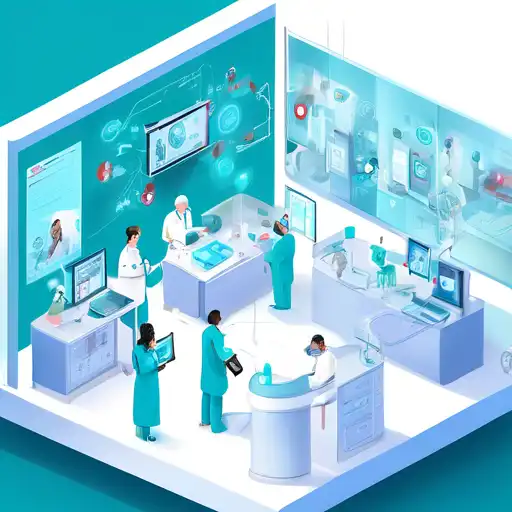The Revolutionary Role of IoT in Healthcare
The integration of the Internet of Things (IoT) into healthcare services is revolutionizing the way patient care is delivered. By enabling real-time monitoring, improving treatment accuracy, and enhancing patient engagement, IoT technologies are setting new standards in the healthcare industry.
Real-Time Patient Monitoring
One of the most significant benefits of IoT in healthcare is the ability to monitor patients in real-time. Wearable devices and smart sensors can track vital signs such as heart rate, blood pressure, and glucose levels, transmitting this data directly to healthcare providers. This continuous monitoring allows for immediate adjustments to treatment plans, potentially saving lives.
Enhanced Treatment Accuracy
IoT devices are also improving the accuracy of treatments. For example, smart inhalers for asthma patients track usage and environmental triggers, helping to manage the condition more effectively. Similarly, IoT-enabled insulin pumps can adjust dosages automatically based on real-time glucose monitoring, reducing the risk of human error.
Improving Patient Engagement and Compliance
IoT technologies empower patients to take an active role in their healthcare. Apps and devices that remind patients to take their medication or attend appointments are improving compliance rates. Furthermore, the data collected by these devices can provide valuable insights into patient behavior, enabling personalized care plans.
Challenges and Considerations
Despite its benefits, the adoption of IoT in healthcare comes with challenges. Data security and privacy concerns are paramount, as sensitive health information is transmitted across networks. Additionally, the cost of IoT devices and the need for digital literacy among patients and providers can be barriers to widespread adoption.
The Future of IoT in Healthcare
The potential of IoT in healthcare is vast. From remote surgeries using 5G networks to AI-driven diagnostics, the future promises even greater advancements. As technology evolves, so too will the ways in which healthcare services are delivered, making care more accessible, efficient, and personalized than ever before.
For more insights into how technology is shaping healthcare, explore our articles on Digital Health Trends and AI in Medicine.
